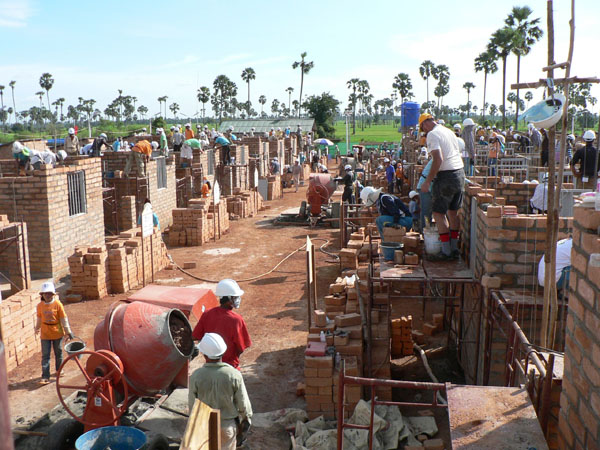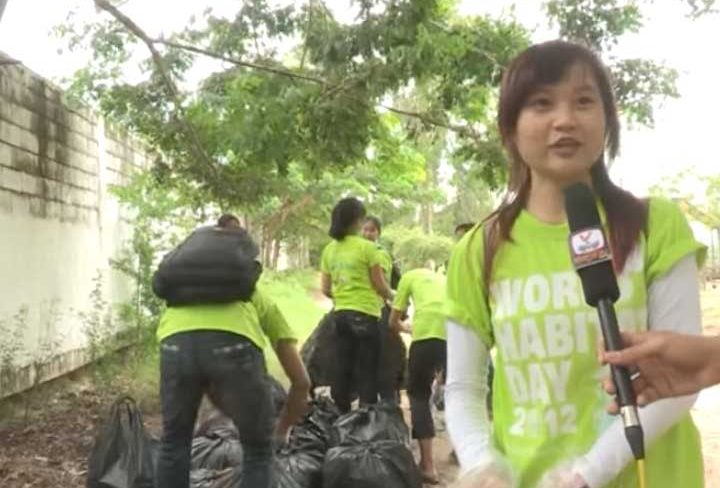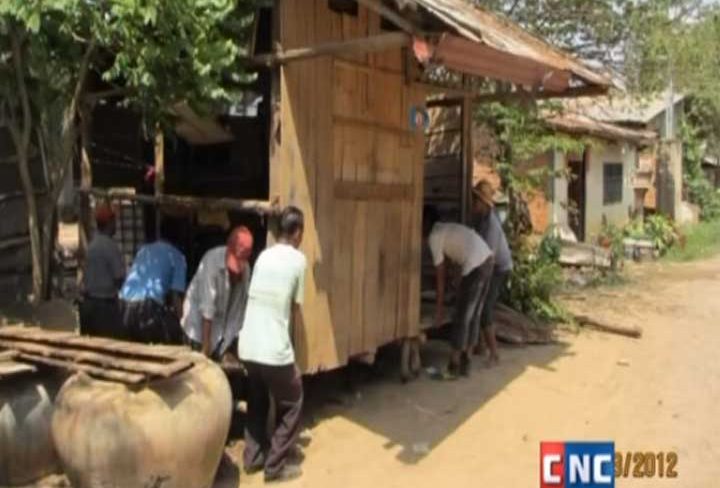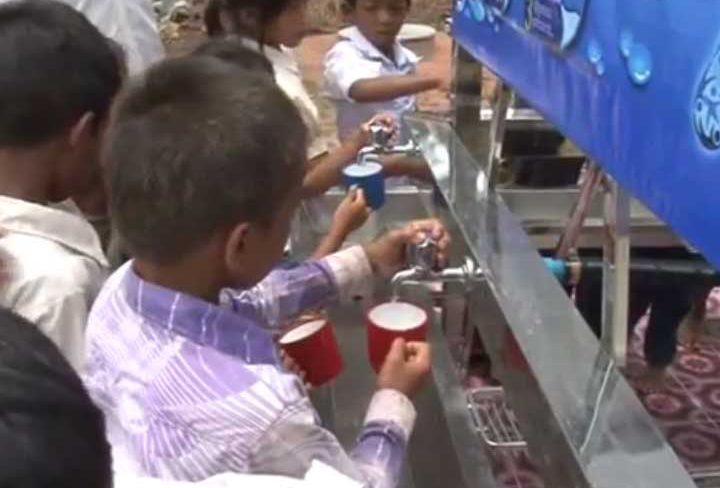
Habitat for Humanity volunteers work on a project building houses for families living on a rubbish dump in Cambodia. Habitat will taking a team to build more houses there this year.
There is also a need for a more holistic intervention at the community level that can address multidimensional poverty issues (such as the lack in water and sanitation and the growing number of informal settlement communities and slums) in a more sustainable manner (e.g. entire village, informal settlement, urban slum).
In regards to water and sanitation, only one in three people living in rural areas have access to safe drinking water. A disinvestment in rural water and sanitation facilities has negative health and economic consequences for the majority of Cambodian families. Many of the deaths among children for example, are preventable. In the absence of preventative measures however, a rural household will spend substantial amounts of their income on expensive curative medical costs. In most cases it has put many rural Cambodian households into a vicious circle of debt to moneylenders. Conversely, households without access to owned, leased and borrowed land continues to increase to 20 percent.
HFHC Action
HFH Cambodia believes in the transformational power of “Community Driven Development”, an approach that gives control over planning decisions and investment resources for local development projects to community groups and allows to create partnerships where different actors provide adapted support based on the demands from the community itself. The aim is to facilitate partnership processes that empower poor or marginalized communities to take initiatives for their own socio-economic development and improvement of their housing conditions. This can be achieved by supporting the creation of inclusive local development committees and facilitation of drafting of local development plans in collaboration with local authorities.



